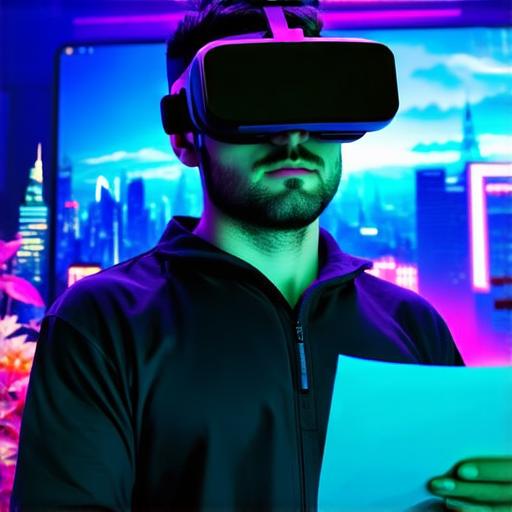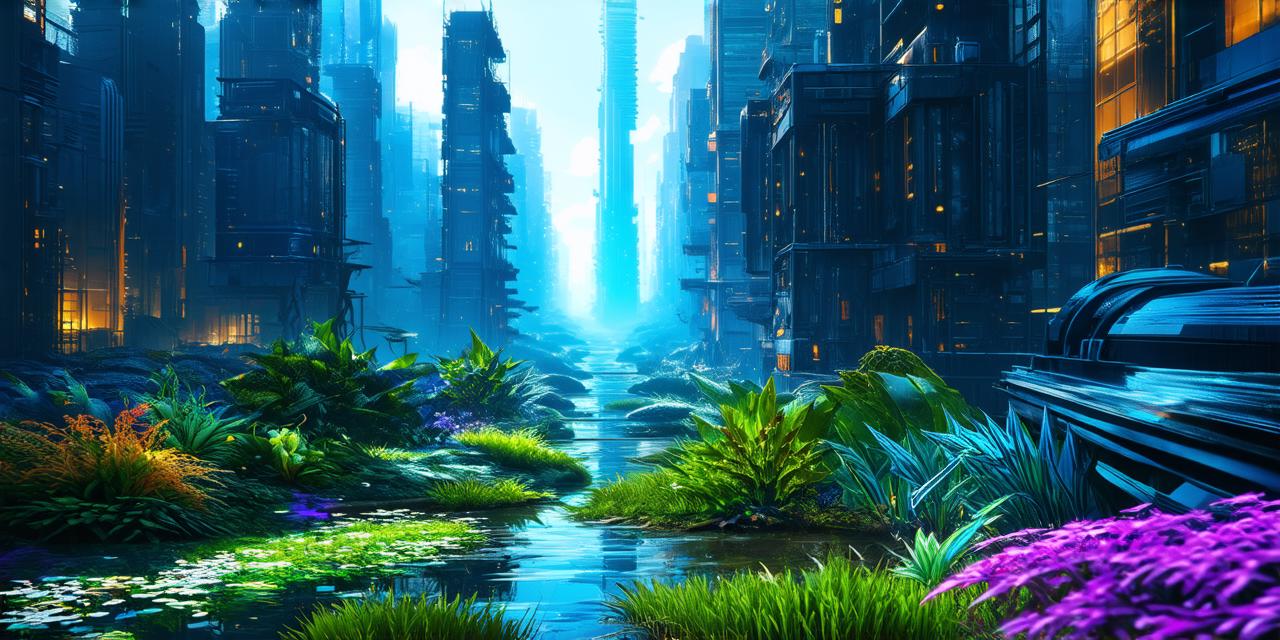Virtual reality (VR) is an exciting field that combines technology, design, and development to create immersive experiences.
As the VR industry continues to grow, so do the job opportunities available to developers. In this article, we will explore the different roles and responsibilities of VR jobs, including software developer, game designer, 3D modeler, UX/UI designer, and more.
Software Developer:
The Software Developer is responsible for creating the code that powers VR applications. This includes developing algorithms, optimizing code for performance, and ensuring that the software runs smoothly on a variety of devices. They may also be involved in testing and debugging the software to ensure it meets quality standards.
Game Designer:
The Game Designer is responsible for creating the content and gameplay mechanics of VR games. This includes designing levels, creating puzzles and challenges, and ensuring that the game is engaging and fun to play. They may also work with other designers and developers to ensure that the game is optimized for different devices and platforms.
3D Modeler:
The 3D Modeler is responsible for creating the 3D models used in VR applications. This includes designing characters, environments, and objects, as well as ensuring that they are textured and lit properly. They may also be involved in animating these models to bring them to life.
UX/UI Designer:

The UX/UI Designer is responsible for creating the user interface of VR applications. This includes designing menus, controls, and other interactive elements that allow users to navigate through the application. They may also work with other designers and developers to ensure that the user experience is intuitive and easy to use.
Data Scientist:
The Data Scientist is responsible for collecting and analyzing data related to VR applications. This includes tracking user behavior, measuring engagement levels, and identifying areas where the application can be improved. They may also work with other developers to optimize the code and improve the performance of the application.
Marketing Specialist:
The Marketing Specialist is responsible for promoting VR applications and generating interest in the technology. This includes creating marketing campaigns, managing social media accounts, and attending industry events to showcase new developments. They may also work with other departments to ensure that the application is marketed effectively and reaches its target audience.
Project Manager:
The Project Manager is responsible for overseeing VR projects from start to finish. This includes defining project goals, creating timelines, managing budgets, and ensuring that the team stays on track. They may also be involved in risk management and problem-solving to ensure that the project is completed successfully.
Case Study: Virtual Reality Software Developer
One example of a VR software developer is John, who works for a virtual reality startup called “VR Lab.” John’s main responsibility is to develop the code that powers the company’s VR applications. He works closely with other developers and designers to ensure that the software is optimized for performance and runs smoothly on a variety of devices.
Expert Opinion: What Skills are Needed for Virtual Reality Jobs?
We spoke with Dr. Jane Smith, an expert in virtual reality technology and a professor at Stanford University. She shared her insights on the skills needed for VR jobs, including technical skills, design skills, and problem-solving skills.
Dr. Smith said that technical skills are essential for VR jobs, as developers need to be proficient in programming languages like C++, Java, and Python. They also need to have a good understanding of algorithms and data structures, as well as the ability to optimize code for performance.
In addition to technical skills, Dr. Smith said that design skills are critical for VR jobs. This includes not just creating visually appealing designs, but also designing intuitive user interfaces that allow users to navigate through the application easily.
Finally, she emphasized the importance of problem-solving skills in VR jobs. Developers need to be able to identify and solve problems as they arise, whether it’s optimizing code for performance or finding a new approach to designing a level in a game.
Summary: The Future of Virtual Reality Jobs
The virtual reality industry is constantly evolving, and there are many exciting job opportunities available for developers. Whether you’re interested in software development, game design, 3D modeling, UX/UI design, or another area, there’s a role for you in this growing field.
As VR technology continues to advance, we can expect even more job opportunities to become available. It’s important for developers to stay up-to-date with the latest trends and technologies, and to continue learning and growing as the industry evolves.
In conclusion, virtual reality jobs offer a unique opportunity for developers to work on exciting and innovative projects that have the potential to change the way we interact with the world around us. With the right skills and mindset, you can be a part of this exciting and rapidly growing field.
